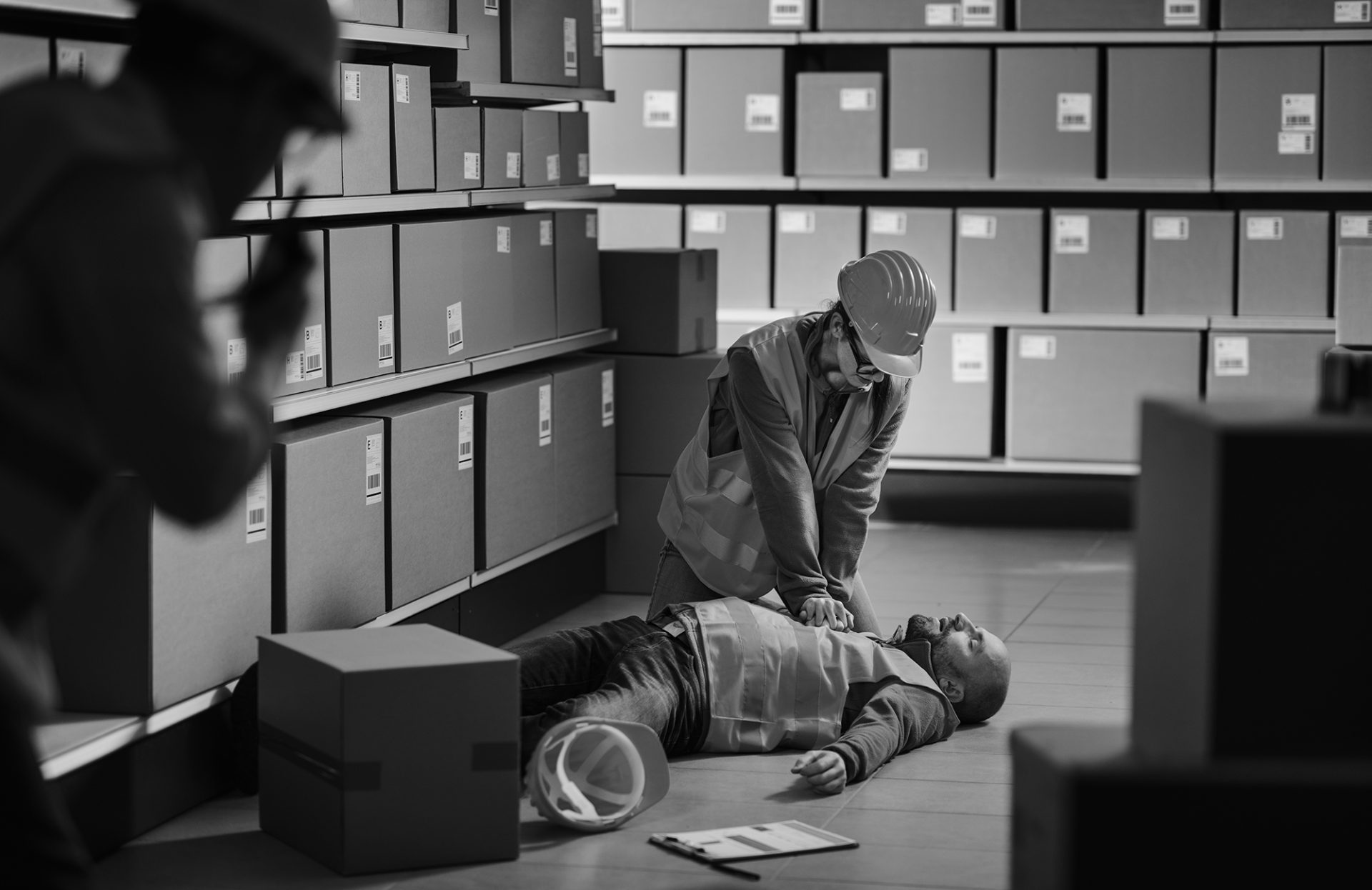Perhaps one of the most frightening thoughts for all of us is to be caught up in a medical emergency without knowing what to do or how to respond.
That’s where we might panic because we aren’t ready to help. Or we can take helpful prompt action with confidence because we have learned CPR.
CPR – or its long name, cardiopulmonary resuscitation – is one of the most convenient and effective types of first aid in situations when someone’s heart stops.
CPR utilises a combination of chest compressions and mouth-to-mouth rescue breathing to help to keep blood circulating and oxygen delivery around the body while waiting for medical professionals to arrive.
Don’t Die July is an initiative that aims to encourage people to learn life-saving CPR, and to increase the number of everyday people who are ready to help save a life in a cardiac emergency.
Here are 10 reasons why you should learn CPR through the CPR101 Course:
#1 You can save a life
CPR is an effective and relatively straightforward form of first aid when someone experiences a cardiac arrest!
When their heat stops, so does the blood that is so vital in delivering oxygen to all our body organs, including our brain. Cardiac arrest often happens suddenly and can affect people who least expect it.
Taking quick action to administer chest compressions and mouth breaths can keep the blood and oxygen flowing, helping to keep the patient’s organs functioning, until professional help arrives.
Cardiac arrest is one of the biggest causes of sudden death. The patient’s survival depends on the people who are nearby and their abilities to help. Research shows that administering CPR can double a patient’s chances of surviving.
#2 Builds your confidence
It’s a terrible feeling to feel anxious and helpless in times of a medical emergency.
You can’t often rely on others in a cardiac emergency, so you must be able to perform CPR yourself.
By learning CPR101, you not only gain important life-saving skills, but you also gain the knowledge to know when to use those skills, and the confidence to take control when a cardiac arrest emergency happens in front of you.
CPR is a valuable tool any time a person’s heart stops, due to cardiac arrest, electrocution, near drowning, choking, severe breathing difficulties from asthma attacks, poisoning or overdose, car accidents, and more.
Knowing CPR provides hope and reduces panic. Learning CPR 101 makes you ready to help save a life.
#3 Contributes to a better community
Communities work best when we all work together – from helping our neighbours in need, volunteering for a local charity, or learning important first aid, including CPR.
The more people in a community who know CPR, the safer and more secure we all feel, because we know there is an increasing chance that there are people nearby who know how to help our fellow community members if a cardiac arrest emergency happens near us.
Cardiac emergencies can happen anywhere when you least expect it. You don’t necessarily need to be certified to perform CPR, but knowing life-saving basic CPR101 can make a positive difference when the need arises in your community.
It’s a good idea for all of us to contribute to creating a safe and secure environment in our community by learning CPR skills.
#4 The person you save might be a family member
Statistics show that around 80% – or four out of five – of out-of-hospital cardiac arrests happen in the family home. That means any person near you who experiences a cardiac arrest is very likely to be a family member or a friend.
And here’s something even scarier: without prompt CPR, only 1 in 10 of those patients will survive.
Imagine if you witness a family member have a cardiac arrest right and collapse to the floor, right in front of you. It will be less frightening if you have the skills to take action and administer CPR.
Learning and knowing CPR101 means you will have the skills to help save the life of a loved one when cardiac arrest happens in your home, especially if there is no one else available to help.
#5 Helps prevent brain damage
One of the big risks that accompanies cardiac arrest is the potential for brain damage.
If someone’s heart stops, and therefore their blood stops pumping around their body, it doesn’t take long before their vital organs will be affected. In particular, a lack of oxygen to our brain can soon cause lasting brain damage or even death.
The faster we act by performing CPR, the greater the chance that the patient will not experience any long-lasting damage and they recover to live a normal life.
Learning CPR 101 means we have the skills to act fast and protect a patient’s most important organ – the brain.
#6 It’s great to learn new skills, like CPR
It’s important for our self-improvement that we keep learning new things through life.
CPR is a valuable skill that not only equips us to save a life, but it means we are making ourselves better and smarter.
It’s a sensible and practical skill that contributes to our overall general knowledge and abilities.
Why not continue your efforts at self-improvement by learning CPR 101?
#7 Anyone can learn CPR – including you!
You don’t need to be a doctor, a paramedic, or a nurse to be able to administer life-saving CPR. Just be you, with the right training!
Anyone can learn the skills to be able to help someone who experiences a cardiac arrest. Children as young as nine have saved lives by doing CPR.
The CPR 101 Course teaches you the skills and the steps required to administer life-saving CPR and help resuscitate victims who have stopped breathing.
You can complete CPR 101 online for $30 in 30 minutes, even in your own home. It will also show you how to use everyday items to help you learn and practice CPR.
CPR is a helpful skill that we all should have, and it is something we can all learn.
#8 Learning CPR is fun
Taking a CPR course with family members, friends, work colleagues or club members can be a great way to bond and build friendships.
Learning an important life-saving course can be easier and more fun with the support of people you know. You can help each other learn an important new skill.
Consider getting a group of five together to learn CPR101.
#9 Quick action is critical for survival
When someone experiences cardiac arrest, the time it takes for them to receive medical help makes the difference between life and death.
The medical care that happens between the cardiac arrest and the time the ambulance or paramedic arrives will make all the difference to the patient.
Knowing the skills to perform CPR and administering it to the victim quickly, can keep their vital organs alive and save their life.
#10 Recognising when someone in trouble needs CPR
Learning and knowing CPR also gives you the ability to recognise when someone is experiencing a cardiac arrest and needs prompt attention.
CPR101 helps people understand the signs of cardiac arrest and when it is the right time to perform CPR.
Join the Don’t Die July initiative today and join the world in this fast, but efficient online CPR course that could ultimately save a life.

